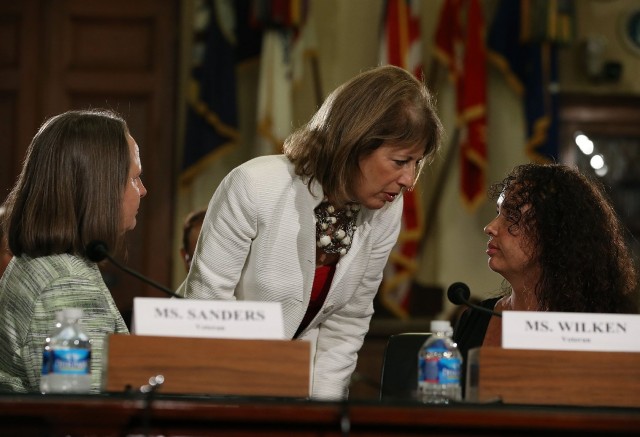Speier described some of the stipulations that would be placed on universities by her legislation in an interview with KQED:
"If a university is not appropriately reporting under what's called the Clery Act when there have been incidents on campus, there is an opportunity now to bring a private right of action (a lawsuit) against the university," Speier said. "It also extends the protection and the education to the LGBT community and those who are eligible under the Americans With Disabilities Act, because we do know the incidents of sexual harassment extends beyond gender. It also applies to those under sexual orientation."
Speier said the university surveys would help hold campuses accountable to students and their families.
"We are patterning this after the military system, where climate surveys have been done and we've been able to track the incidents of sexual assault and rape in the military. And it creates accountability by virtue of seeing how many victims will report," Speier said. "Now they tend to report anonymously in a survey, and you see the disparity between the figure that represents those who actually have been sexually assaulted and those who report. And that draws in clear relief the problem and the fact that there has to be something done about it."
Earlier this year, a White House task force found that one out of five female college students has been assaulted. In May, the U.S. Department of Education's Office for Civil Rights released a list of 55 colleges and universities under investigation over their handling of sexual violence and harassment complaints.
Listen to an extended interview with Speier below:
A bipartisan group of U.S. senators also introduced legislation Wednesday aimed at curbing sexual assaults on campus. The New York Times described some of the requirements and punitive measures that would be placed on universities:
The new measure would require every university in the United States to conduct anonymous surveys of students about their experience with sexual violence on campus, with the results published online. The survey, which had been pushed for by sexual assault victims, is similar to one conducted by the military, and would allow parents and high school students to make comparative choices.
The bill would also increase the financial risk for schools that do not comply with certain requirements of the bill, like conducting the surveys. Schools would face possible penalties of up to 1 percent of their operating budget; previously, universities that violated student rights in sexual assault cases risked the loss of federal funding, but the punishment (had) never been applied and lawmakers said it was impractical.
The bill increases penalties under the Clery Act — a federal law requiring all colleges and universities receiving federal financial aid to disclose information about campus crimes — to up to $150,000 per violation, from $35,000. Last year, the Department of Education fined Yale University $165,000 for failing to disclose four sexual offenses involving force that had occurred over several years, and other schools have also been fined.
Stanford University Creates Its Own Sexual Assault Task Force
Stanford University is taking steps to crack down on campus sexual assaults and has named 17 students, faculty and staff to a task force that will review and recommend changes to the universities' policies.
They will consider how to prevent sexual assaults, help with support following an incident and improve the disciplinary process. From the Palo Alto Weekly:
The university said in a release that the Task Force on Sexual Assault Policies and Practices, chaired by Stanford Law School Dean M. Elizabeth Magill and Associated Students of Stanford University (ASSU) President Elizabeth Woodson, will begin work shortly and continue through the upcoming academic year.
The task force has been asked to seek input from the campus community and to review and make recommendations about Stanford's activities in three areas: education and prevention, support following an incident and adjudication of reported cases of sexual violence, including both the Title IX investigation process and the disciplinary process. The task force will make its first set of recommendations this fall, the university said.
The Stanford task force is calling for expulsion as the default sanction for students who are found guilty of sexual assault.
"In the institution there's a code of conduct, and if you violate the code of conduct by committing a crime, I believe you should be expelled," Speier said. "And what many of these universities have done is suspended the student or expelled them after they graduated and prevented them from coming back to take course work on campus as a postgraduate until one or two semesters have passed. That is the proverbial slap on the hand."
Congresswoman Jackie Speier's bill to increase transparency and reporting on campus sexual violence.
